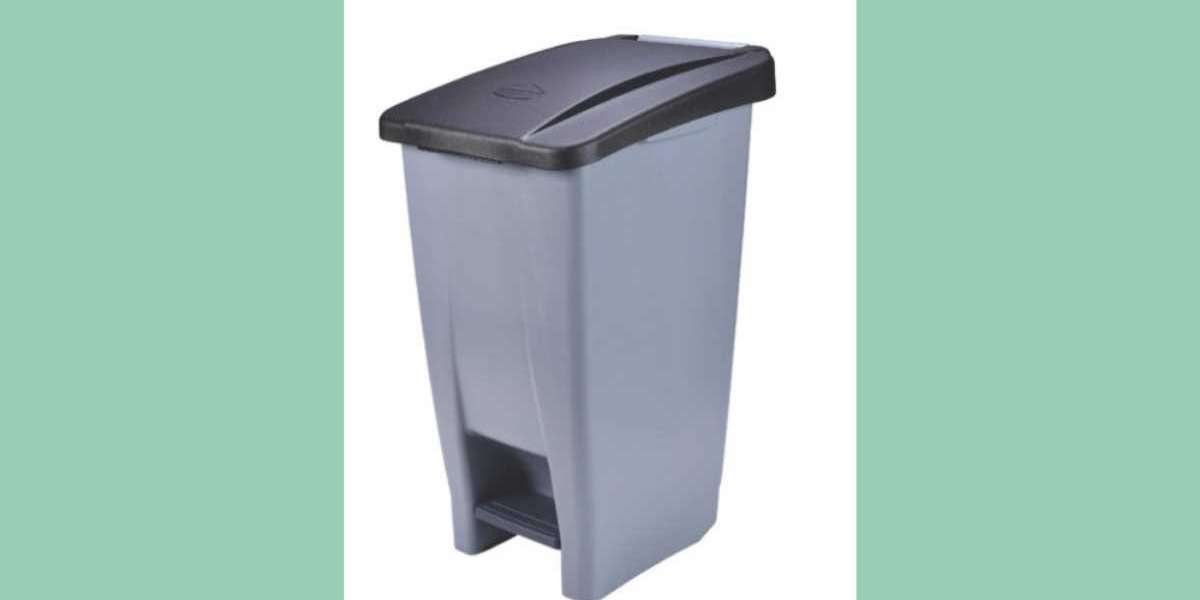A waste container is essential for proper waste disposal, whether at home, in businesses, or on construction sites. It helps keep spaces clean, prevents pollution, and supports recycling efforts. With growing concerns about environmental protection, choosing the right waste container is more important than ever.
In this article, we’ll explore different types, uses, and benefits of waste containers, helping you make informed decisions for better waste management.
What Is a Waste Container?
A waste container is a bin, barrel, or dumpster used to collect and store waste before disposal. These containers vary in size, material, and design depending on their purpose. Some are used for general trash, while others are meant for recyclable materials or hazardous waste.
Common Types of Waste Containers
Trash Bins – Found in homes, offices, and public areas for general waste.
Recycling Bins – Designed for paper, plastic, metal, and glass.
Dumpster Rentals – Large containers for construction or commercial waste.
Medical Waste Bins – Used in hospitals for disposing of biohazardous materials.
Why Proper Waste Containers Are Necessary?
Using the right waste container ensures cleanliness and prevents health hazards. Proper disposal also reduces environmental impact and encourages recycling.
Key Benefits:
✔ Prevents the spread of diseases by keeping waste covered.
✔ Reduces foul odors and keeps surroundings clean.
✔ Encourages recycling and minimizes landfill waste.
✔ Enhances workplace safety by keeping hazardous waste contained.
According to the EPA, the U.S. generates over 292.4 million tons of waste annually, making proper waste management crucial.
Choosing the Right Waste Container for Your Needs
Selecting the right waste container depends on the type and amount of waste you generate. Here’s a quick guide:
| Waste Type | Best Container Option |
|---|---|
| Household Waste | Small trash bins or garbage bags |
| Recycling Materials | Separate recycling bins |
| Construction Debris | Large dumpsters |
| Hazardous Waste | Specialized waste bins |
| Medical Waste | Biohazard containers |
Businesses and homeowners should assess their waste output before choosing a waste container to avoid overflow and ensure proper disposal.
Residential Waste Containers: Best Options for Homes
Homes need efficient waste disposal solutions to maintain cleanliness. Common choices include:
Kitchen Trash Bins – Small containers with lids to store daily waste.
Outdoor Garbage Cans – Larger bins for weekly trash collection.
Compost Bins – Ideal for organic waste like food scraps.
Studies show that an average U.S. household produces about 4.9 pounds of waste per day, emphasizing the need for proper waste containers.
Commercial Waste Containers: Keeping Businesses Clean
Businesses generate large amounts of waste, requiring durable and efficient waste containers. Some top choices include:
Large Dumpsters – Suitable for restaurants, offices, and retail stores.
Recycling Stations – Encourage employees and customers to recycle.
Industrial Waste Bins – Handle hazardous or bulky waste.
A well-managed waste container system improves hygiene and efficiency in commercial spaces.
Construction Waste Containers: Essential for Job Sites
Construction sites produce large amounts of debris, making proper waste disposal critical. The best options are:
Roll-Off Dumpsters – Large containers for concrete, wood, and metal scraps.
Debris Chutes – Help transport waste from higher floors safely.
Many cities require contractors to use waste containers for debris to maintain safety and environmental compliance.
Recycling Waste Containers: Reducing Landfill Waste
Recycling helps conserve natural resources and reduce pollution. Using the right waste container for recyclables is essential. Common types include:
Single-Stream Recycling Bins – Allow mixed recyclable materials.
Multi-Compartment Bins – Separate paper, plastic, and metal.
Glass Recycling Containers – Specifically for glass bottles and jars.
The EPA states that recycling reduces landfill waste by 32%, proving the importance of proper waste container use.
Medical Waste Containers: Safe Disposal for Hospitals
Medical waste requires special handling to prevent contamination and disease spread. Hospitals and clinics use:
Sharps Containers – For needles and surgical blades.
Biohazard Bins – Store infectious materials safely.
Pharmaceutical Waste Bins – Dispose of expired medications properly.
Strict regulations ensure that these waste containers meet safety standards to protect public health.
Eco-Friendly Waste Containers: A Step Towards Sustainability
Many businesses and homeowners are now opting for eco-friendly waste containers made from recycled or biodegradable materials. Some options include:
Compost Bins – Convert food waste into fertilizer.
Biodegradable Trash Bags – Reduce plastic pollution.
Solar-Powered Trash Compactors – Save space and energy.
Eco-friendly waste containers support sustainability and reduce environmental impact.
How to Maintain Waste Containers for Long-Term Use?
Regular maintenance ensures that waste containers remain effective and hygienic. Follow these simple tips:
✅ Clean regularly to prevent odor and bacteria buildup.
✅ Use liners or bags to keep the container interior clean.
✅ Check for damage and replace broken lids or wheels.
✅ Follow waste disposal rules to avoid contamination.
A well-maintained waste container lasts longer and ensures a cleaner environment.
Final Thoughts
A waste container is a crucial tool for managing waste efficiently. Whether at home, in businesses, or on construction sites, the right waste container improves cleanliness and promotes sustainability. By choosing the appropriate type and maintaining it properly, you contribute to a cleaner and healthier world.
Investing in the right waste container is a simple yet effective step toward better waste management. Start today and make a difference!











